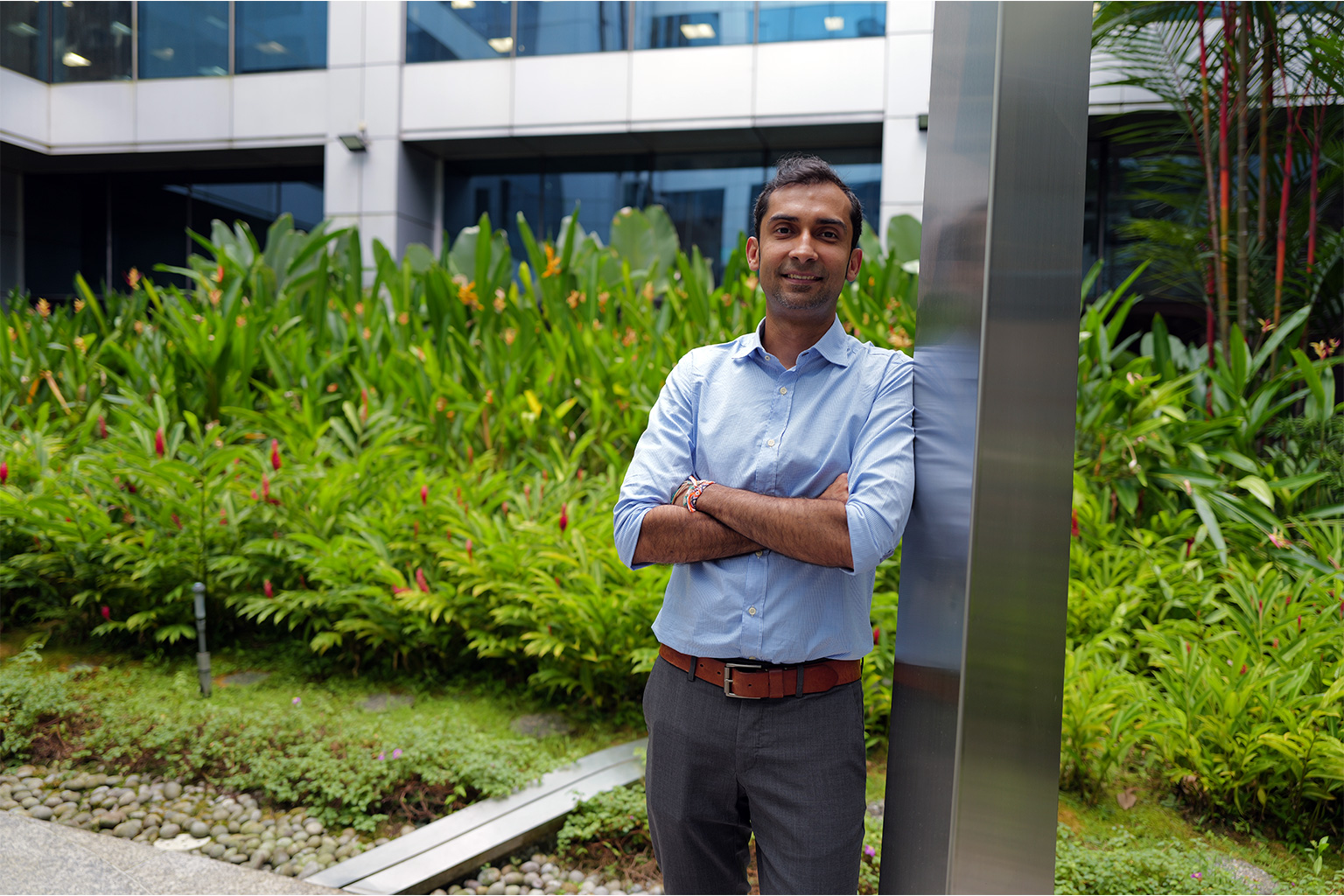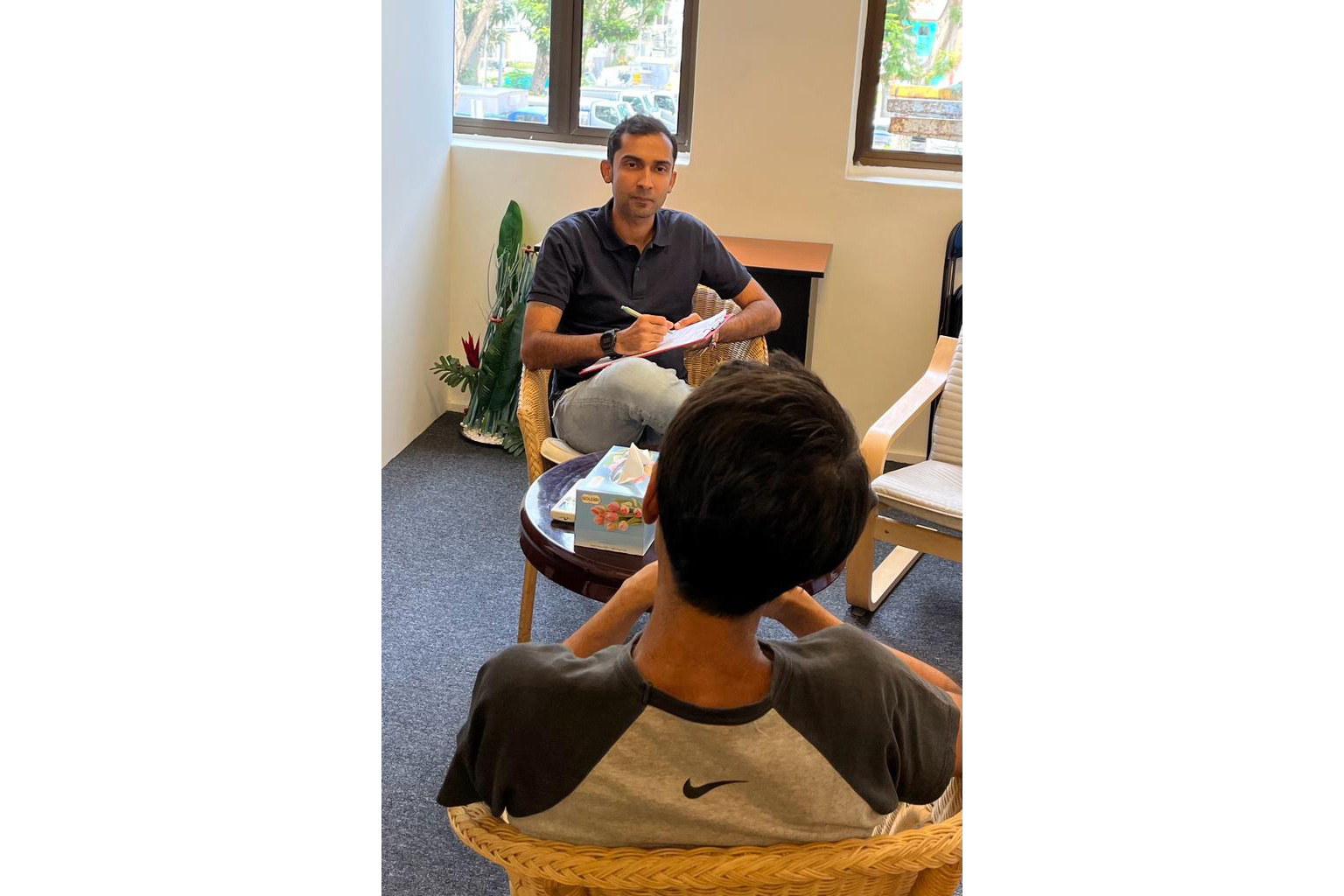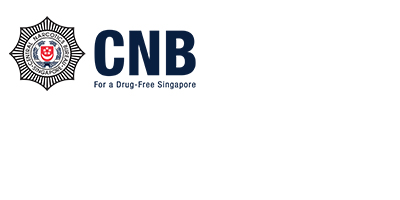BRANDED CONTENT
From struggle to service: His fight with cannabis sparks his mission to steer youths clear
As substance abuse among young adults rises in Singapore, psychotherapist Gopal Mahey tackles common “harmless drug” myths and underscores the vital role of parents

Mr Gopal Mahey also volunteers as an anti-drug advocate with the Central Narcotics Bureau and a peer leader at the Singapore Anti-Narcotics Association. PHOTO: SPH MEDIA
Mr Gopal Mahey recalls a past life when he would wake up in places with no memory of how he arrived there. The former cabin crew member battled severe drug addiction for years after he started taking cannabis and other various drugs at 18.
He drifted across the world in a haze of narcotics and alcohol, chasing highs that only left him feeling lower.
“People around me were asking questions and concerned about my health. I had lost weight drastically, was isolating myself, showing up late for appointments,” says Mr Mahey. “I had lost control.”
He sank deeper into his dependence until one day he was jolted out of his stupor.
His turning point came in 2013 when he was arrested for drug abuse. He was sentenced to eight years imprisonment and seven strokes of the cane.
“It broke the cycle of addiction. I was confined to a prison cell and had no access to substances,” he adds. “Only when my hands were tied did I contemplate the need for change.”
He realised addiction had destroyed nearly every aspect of his life, from his career to relationships and finances.”I could identify all the tell-tale signs of my progressive drug addiction. But I had a false sense of confidence, and I continued despite the harmful consequences,” he says. It was the wake-up call he needed to start rebuilding his life.
Today, the 41-year-old is a psychotherapist who helps people with similar struggles. He has been clean for eight years. He volunteers as an anti-drug advocate with the Central Narcotics Bureau (CNB) and as a peer leader at the Singapore Anti-Narcotics Association (SANA).
In these roles, he shares his story with honesty and compassion, aiming to assist others in their battle to overcome addiction.
“I have a heart for those suffering from mental health issues and addiction,” he says. “Both have plagued my past, and it is my desire to walk with others through their own journey.”
Mr Mahey’s struggle with drug addiction informs his concern about a growing trend: Cannabis consumption has increased in recent years, particularly among youths. According to a Straits Times report, the number of cannabis abusers caught grew by 71 per cent, from 138 in 2021 to 236 in 2022. Of the 168 new cannabis abusers arrested in 2022, 70 per cent were below 30.
Rising cannabis use among youths

According to Mr Mahey, parents can help their children steer clear of drugs by having an open and honest communication with them. PHOTO: GOPAL MAHEY
Cannabis's popularity has surged in recent years, owing to a global shift in attitudes towards the plant. In countries such as Thailand and the Netherlands, cannabis has been legalised for medical or recreational purposes, further fuelling its demand and acceptance.
The widespread availability of pro-cannabis content has contributed to a more permissive attitude towards its use. But behind the smoke and hype, there is a darker reality.
Cannabis is not the benign high that many people believe it to be. The drug's use is associated with increasing addiction rates, health issues, and impaired brain development in teenagers.
One of the most common myths Mr Mahey encounters is the belief that cannabis is not addictive and has no lasting effects. However, research shows cannabis can become habit-forming more easily than you might think.
About one in 10 people who use cannabis will become dependent on it. That means they will experience withdrawal symptoms such as cravings, irritability, anxiety, and insomnia when they try to quit.
But the most concerning effect of cannabis is on the developing brains of young people. One study showed it can lower IQ by up to eight points for those who use it regularly before turning 18, compared to non-users.
“We must dispel the myth that cannabis is harmless, especially to developing brains,” says Mr Mahey. “Young people need accurate information about the potential risks.”
How parents can make a difference
Parents play a crucial role in helping their children steer clear of drugs. But how can they achieve this? The key is open and honest communication, says Mr Mahey.
Parents should discuss the risks associated with drugs with their children and set clear expectations for their behaviour. They should also be involved in their children's activities and ask about their friendships, as these can help deter them from experimenting with drugs.
It becomes more complicated if a parent suspects their child is already using drugs. They walk a fine line between confronting them without alienating them. Mr Mahey advises initiating the conversation with a non-confrontational approach.
Parents should express their concerns and practise active listening to understand their child’s perspective. Avoid shouting at, blaming or threatening your child – all of which can cause children to become defensive or fearful.
And if their child is abusing drugs, parents' best course of action is to combine early intervention with a compassionate approach. They should seek professional help to navigate the challenge of finding an appropriate treatment option. They should also act as a trustworthy figure to whom their child can turn to for advice and guidance in overcoming their drug-related challenges.
Mr Mahey says: “It is natural for parents to feel anxious and powerless when they know their child is struggling with drug addiction. But I always tell them that this is not the end. There is hope and help available in the community.”
If you are a parent and suspect your child is abusing drugs, or if you are seeking help for treatment for substance abuse, get in touch with SANA Step Up Centre or the National Addictions Management Service for counselling.
Brought to you by



